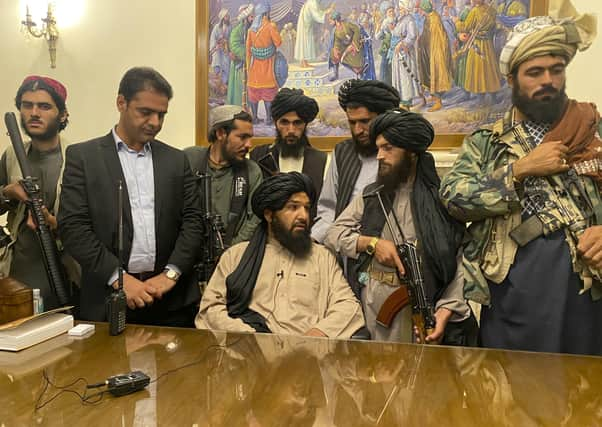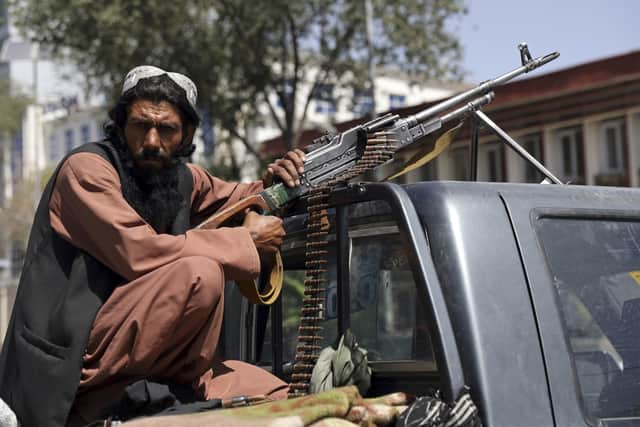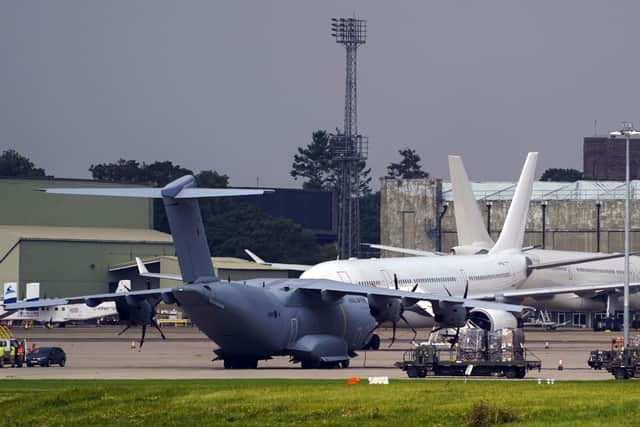Rise of Taliban has roots in Soviet invasion of Afghanistan – Gwynne Dyer


It was ruled by angry rural fanatics who tormented the local people with their demented rules for proper ‘Islamic’ behaviour.
It is about to return to that isolated and isolationist existence. Neither then nor now do the Taliban even have a foreign policy.
Advertisement
Hide AdAdvertisement
Hide Ad

They are more like a franchise operation whose various elements share certain basic principles – e.g. foreigners, women and democracy are bad – but whose members are primarily focused on local issues and personal ambitions.
The Russians and the Americans share the blame for this catastrophe. It’s hard to believe that an uninvaded Afghanistan could have peacefully evolved into a prosperous democratic society with equal rights for all, but ‘uninvaded’ is the only condition in which it could conceivably have approached that goal.
There was the germ of such a locally-led modernisation process in the overthrow of the king in 1973 and the proclamation of an Afghan republic. Other Muslim-majority states have made that transition successfully – Turkey did, for example, despite its current government – but the Afghan attempt did not prosper.
Advertisement
Hide AdAdvertisement
Hide AdViolent resistance by traditional social and religious groups started at once, and the tottering new republican regime was overthrown in 1978 by a bloody military coup. The young officers who seized power were Marxists who imposed a radical reform programme.


They gave women the vote and equal access to education, carried out land reforms and even attacked the role of religion. By 1979, the Marxist regime was facing a massive revolt in conservative rural areas, and one faction asked for Soviet military help.
The moribund Communist leadership in Moscow agreed, and 100,000 Soviet troops entered the country. The subsequent war devastated the country for a decade – with much help from the United States.
Former US National Security Adviser Zbigniew Brzezinski recalled: “The day that the Soviets officially crossed the (Afghan) border, I wrote to President Carter: ‘We now have the opportunity of giving to the USSR its Vietnam War’.” He immediately started sending money and weapons to the rural rebels who later became the Taliban.
Advertisement
Hide AdAdvertisement
Hide AdIt took 10 years, $40bn of clandestine US military aid, and around a million Afghan dead, but by 1989 the Taliban and their various Islamist rivals forced the Russians to pull out.
Shortly afterwards the Soviet Union collapsed, and Brzezinski arrogantly but implausibly claimed credit for it.
“What is most important to the history of the world?” he asked. “The Taliban or the collapse of the Soviet empire? Some stirred-up Muslims or the liberation of Central Europe and the end of the Cold War?” In reality, the Soviet Union was heading for collapse anyway, but the ‘stirred-up Muslims’ turned out to be a fairly large problem.
The Taliban took power in Kabul in 1996 after a long all-against-all war between the various Islamist groups, and ruled most of the country badly and brutally for five years. Then an Arab Islamist called Osama bin Laden abused the hospitality of the Taliban leader Mullah Omar by launching the 9/11 attacks against the United States in 2001.
Advertisement
Hide AdAdvertisement
Hide AdBin Laden may not even have told Mullah Omar about the attacks in advance. The ‘need to know’ principle for secret operations argues against it, as does the possibility that Mullah Omar might have forbidden the attacks because he didn’t want to be invaded.
An American invasion was inevitable after 9/11. That led to another 20 years of war: the Taliban against another set of foreigners who understood little about the country’s recent history and why it made local people profoundly mistrustful of ‘helpful’ foreigners.
Even now Americans don’t realise how closely they have recapitulated the Soviet experience in the country. The ending that is now unfolding was foreordained from the start, although it has taken twice as long to arrive because the United States is much richer than Russia. Nevertheless, the aftermath will also be the same.
The various factions of the Taliban will split, and another civil war of uncertain length will follow. The rule of the winners will be as cruel and arbitrary as it was last time. And the rest of the world will rapidly lose interest, but at what cost?
Advertisement
Hide AdAdvertisement
Hide AdGwynne Dyer is a foreign correspondent and author of a new book called ‘The Shortest History of War’.
Support The Yorkshire Post and become a subscriber today. Your subscription will help us to continue to bring quality news to the people of Yorkshire. In return, you’ll see fewer ads on site, get free access to our app and receive exclusive members-only offers. Click here to subscribe.
Comment Guidelines
National World encourages reader discussion on our stories. User feedback, insights and back-and-forth exchanges add a rich layer of context to reporting. Please review our Community Guidelines before commenting.